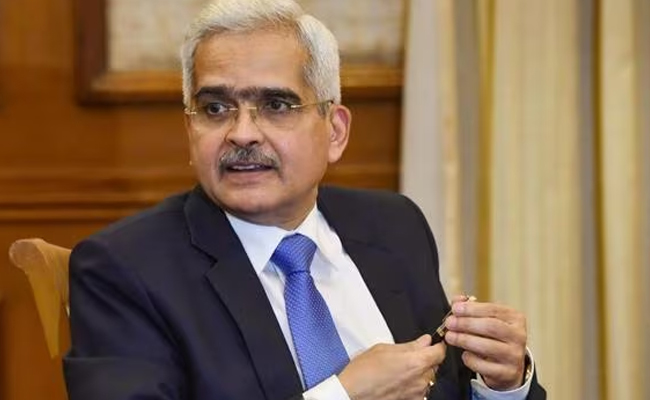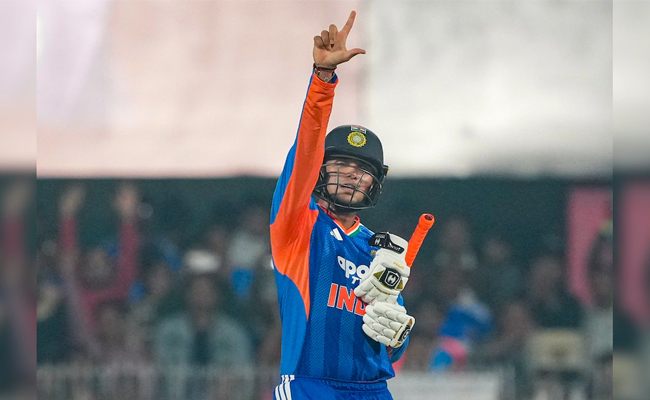Mumbai (PTI): Digital rupee users will soon be able to execute transactions in areas with limited internet connectivity as the RBI on Thursday announced that offline capability will be introduced on the Central bank digital currency (CBDC) pilot project.
Reserve Bank of India Governor Shaktikanta Das said that programmability-based additional use cases will be introduced as part of the pilot project.
RBI launched a pilot of the retail CBDC in December 2022 and achieved the target of having 10 lakh transactions a day in December 2023.
It can be noted that other payment platforms, especially the very popular Unified Payments Interface (UPI), already offer offline possibilities.
"it is proposed to introduce an offline functionality in CBDC-R (Retail) for enabling transactions in areas with poor or limited internet connectivity," Das said while announcing the bi-monthly monetary policy review.
He said multiple offline solutions, which include both proximity and non-proximity based ones, will be tested across hilly areas, rural and urban locations for the purpose.
On the programmability front, he said that currently, the system enables Person to Person (P2P) and Person to Merchant (P2M) transactions using digital rupee wallets provided by pilot banks.
"It is now proposed to enable additional use cases using programmability and offline functionality," he said.
The programmability feature will permit users like government agencies to ensure that payments are made for defined benefits, he said, adding that corporates will also be able to programme specified expenditures like business travel for their employees.
Additional features like validity period or geographical areas within which CDBC may be used can also be programmed, he said.
Meanwhile, Das also announced RBI's intent to enhance the security features of Aadhaar enabled Payment Systems (AePS), which was used by 37 crore people in 2023.
"To enhance the security of AePS transactions, it is proposed to streamline the onboarding process, including mandatory due diligence, for AePS touch point operators, to be followed by banks," Das said, adding that instructions on the same will be issued shortly.
At present, Das said lenders are using the SMS method for complying with the additional factor authentication requirements but advancements in technology have opened up newer means.
"To facilitate the use of such mechanisms for digital security, it is proposed to adopt a principle-based "Framework for authentication of digital payment transactions"," he said.
Let the Truth be known. If you read VB and like VB, please be a VB Supporter and Help us deliver the Truth to one and all.
Ahmedabad (PTI): A peerless India will be hoping that Abhishek Sharma returns to his destructive ways and the other batters up their game against spin when the side takes the field for its final T20 World Cup league fixture against the Netherlands here on Wednesday.
Having established himself as one of the most dangerous batters in the game over the last 18 months, Abhishek is yet to go ballistic in the ICC event at home thus far.
After a nought in the opener, a stomach infection forced him out of the game against Namibia. He returned for the high stakes Pakistan contest but failed to get a run for the second time in as many matches.
But with Ishan Kishan showing imperious form at the other end, the lack of runs from Abhishek's bat have not impacted the team's cause.
ALSO READ: Smriti Mandhana named BBC Indian Sportswoman of the Year for 2025
To be fair to the 25-year-old, his high-risk play has resulted in multiple wins for India and perhaps it is only a matter of time before he makes the best of bowlers look ordinary again.
However, four ducks in his last six innings do suggest that he may need to review his plans in the powerplay.
Considering his intimidating credentials, it is clear that teams have spent extra time in preparation to tackle the India opener.
By his own admission, Abhishek doesn't have the wide range of shots possessed by others in the line-up and he relies on the use of crease and his free flowing bat swing to scare the daylights out of the opposition.
He likes to target the deep cover boundary in powerplay and starting with the USA game, teams have been smart to deploy a fielder in that region.
Pakistan also had set a similar field for him on Sunday that also included a deep mid-wicket, mindful that he doesn't attempt shots behind the wicket often.
With India already through to the next stage of the tournament, the Netherlands game presents an ideal opportunity for him to get back among the runs.
India managed to make short work of Pakistan, thanks to a sublime effort from Kishan and the bowlers. However, for the second game in a row, the batters did not show the conviction displayed by Kishan.
After Namibia captain Gerhard Erasmus was able to trouble the Indian batters with his round arm and behind the stumps variations, another unorthodox spinner, Usman Tariq, was able to keep them quiet in the Pakistan clash.
Even Saim Ayub was effective against the Indians.
With due respect to the Netherlands attack, their quality of spinners are not in the same league even though Aryan Dutt and Roelof van der Merwe have been around for a while.
On the bowling front, India have the option to rest a few bowlers before the Super 8s and that includes pace spearhead Jasprit Bumrah.
After picking Kuldeep Yadav over Arshdeep Singh as the extra spin option in Colombo, the team management is expected to go back to the two specialist pacers combination.
If Bumrah is rested, Mohammed Siraj and Arshdeep are expected to start.
The two likely spinners will be Varun Chakaravarthy and Axar Patel.
The Netherlands would need drastic improvement in their batting and bowling to compete with the defending champions. They lost heavily to USA in their previous game after a convincing win over Namibia.
Ahmedabad has produced the highest total of the games played in India thus far -- 213/4 that South Africa scored in their opener against Canada -- but in the last two games, teams batting first have not managed to cross the 200-run mark.
Even with the Indian involvement, it would be a challenge to pack the world's largest cricket stadium on a pleasant Wednesday evening.
Teams (from):
=========
India: Suryakumar Yadav (c), Abhishek Sharma, Tilak Varma, Sanju Samson, Shivam Dube, Ishan Kishan, Hardik Pandya, Arshdeep Singh, Jasprit Bumrah, Mohammed Siraj, Varun Chakaravarthy, Kuldeep Yadav, Axar Patel, Washington Sundar, Rinku Singh.
Netherlands: Scott Edwards (c), Colin Ackermann, Noah Croes, Bas de Leede, Aryan Dutt, Fred Klaassen, Kyle Klein, Michael Levitt, Zach Lion-Cachet, Max O'Dowd, Logan van Beek, Timm van der Gugten, Roelof van der Merwe, Paul van Meekeren, Saqib Zulfiqar.





